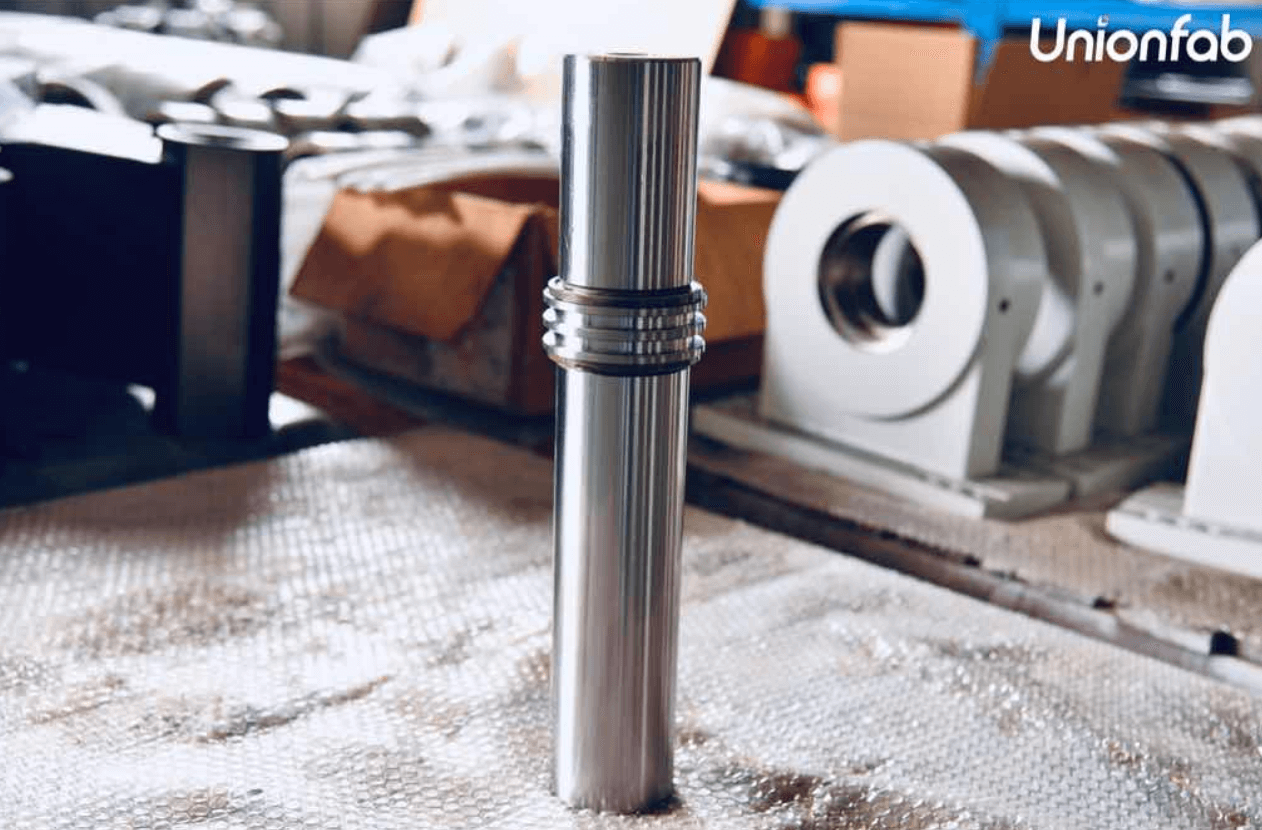What Is High Speed Steel? [+ CNC Applications]
![What Is High Speed Steel? [+ Material Guide]](https://ufc-dtc-cms.oss-accelerate.aliyuncs.com/blog/20250212/211811_a7ajjcacw.png)
Compare high speed steel with other tool steels with our material guide and find the best CNC machining solutions at Unionfab.
Introduction
Are you facing material selection challenges in CNC machining? High Speed Steel (HSS) is known for its exceptional hardness and wear resistance, making it a popular choice for cutting tools, molds, and mechanical components. But is it the right material for your project? Our blog will provide a comprehensive overview of high speed steel to help you make an informed decision!
This guide is for:
Beginners: Unfamiliar with High Speed Steel and its differences from other metals.
Engineers & Procurement Professionals: Seeking high-performance materials for CNC machining but unsure if HSS is the right choice.
Manufacturers: Focused on material cost, machining performance, and durability, looking for the most cost-effective CNC solution.
Understanding High Speed Steel (HSS)
High Speed Steel (HSS) is a high-performance tool steel known for its exceptional hardness, wear resistance, and heat resistance. It is widely used in CNC machining, particularly for cutting tools such as drills, taps, end mills, and gear cutters.
HSS is designed to withstand high cutting speeds without losing its hardness, making it a preferred material for precision machining applications. Compared to conventional carbon steel, HSS offers superior durability and performance under demanding conditions.
Composition and Properties
HSS Composition Breakdown

HSS is an alloy steel that contains elements such as tungsten (W), molybdenum (Mo), chromium (Cr), vanadium (V), and cobalt (Co). These elements contribute to its key properties:
Element | Function |
|---|---|
Tungsten (W) | Enhances hardness and wear resistance |
Molybdenum (Mo) | Improves toughness and high-temperature strength |
Chromium (Cr) | Provides corrosion resistance and strength |
Vanadium (V) | Enhances hardness and grain refinement |
Cobalt (Co) | Increases red hardness and temperature resistance |
High Hardness: Typically rated between 60-70 HRC, allowing for precise and long-lasting cutting edges.
Excellent Wear Resistance: Reduces tool wear and extends tool life, making it ideal for high-volume machining.
Heat Resistance (Red Hardness): Maintains strength and cutting ability at elevated temperatures, enabling high-speed machining.
Toughness: Provides good resistance to chipping and cracking, ensuring reliability in CNC operations.
Types of High Speed Steel
There are two primary categories of HSS, based on the alloying elements used:
Comparison of T-Series and M-Series HSS
Type | Key Characteristics | Common Grades | Best Applications |
|---|---|---|---|
Tungsten-Based HSS (T-Series) | Higher hardness and wear resistance, better red hardness | T1, T15 | High-speed cutting tools, drills, and milling cutters |
Molybdenum-Based HSS (M-Series) | More cost-effective, balanced performance | M2, M4, M42 | General-purpose machining, saw blades, industrial tools |
Choosing the Right HSS Type
For high-speed machining and extreme wear resistance: T-Series (T1, T15) is ideal due to its superior red hardness.
For cost-effective general machining: M-Series (M2, M4, M42) offers a great balance of toughness and performance.
Applications of High Speed Steel in CNC Machining
High Speed Steel (HSS) is widely used in CNC machining due to its balance of performance, durability, and cost-effectiveness. It is particularly beneficial in applications where tool longevity and precision are critical. Below, we explore how HSS meets the key concerns of engineers, procurement professionals, and manufacturers looking for high-performance machining solutions.
Cost-Effectiveness
Compared to carbide and other high-performance materials, HSS provides a more affordable solution while still offering excellent durability and wear resistance. It is ideal for:
Small to Medium Batch Production – Lower tooling costs compared to carbide alternatives.
General-Purpose Machining – Suitable for a variety of metals without excessive tool wear.
High-Speed Applications – Allows for efficient cutting with minimal material waste.
Performance Advantages
HSS maintains high hardness and edge retention at elevated temperatures, making it an excellent material for cutting tools. Performance benefits include:
Extended Tool Life – Resists wear over long machining cycles.
High Precision – Provides consistent and accurate cutting.
Versatility – Can be used across various machining operations, including turning, milling, and grinding.
Visit Unionfab's CNC Machining Services to learn more!

Key Application Areas
HSS is commonly used for machining components that require:
High-Speed Cutting Tools – Such as drills, taps, end mills, and reamers.
Precision Gear Manufacturing – Ensuring strong, wear-resistant gear teeth.
Mold and Die Applications – Where durability and precision are essential.
Industrial Blades and Knives – Used in material processing industries.
Suitable Machining Processes
Machining Process | Best for HSS Applications |
|---|---|
CNC Turning | Precision cutting tools |
CNC Milling | Complex geometries |
Grinding | Surface finish improvement |
CNC Turning (Lathe Machining)
High Speed Steel is commonly used in CNC turning for making precision cutting tools such as lathe bits. Its high hardness and toughness enable it to withstand high-speed operations while maintaining precision.
CNC Milling
HSS milling cutters, such as end mills and face mills, are widely used for machining complex geometries. They provide excellent cutting performance and extended tool life compared to standard carbon steel tools.
Grinding
HSS components often undergo grinding to enhance surface finish and achieve tight tolerances. This process is crucial in tool and die making, where precision and smoothness are critical.
High Speed Steel vs. Other Tool Steels
Tip: Use this table to quickly compare the properties of HSS with other tool steels and choose the best material for your application.
Material | Hardness (HRC) | Wear Resistance | Heat Resistance | Cost | Best Use Cases |
|---|---|---|---|---|---|
HSS | 60-70 | High | Medium-High | Medium | Cutting tools, gears, machine parts |
Carbide | 80-90 | Very High | Very High | High | High-speed machining, hard materials |
Tool Steel (D2, O1, etc.) | 55-65 | Medium-High | Medium | Medium-Low | Dies, punches, knives |

While carbide offers better wear and heat resistance, it is more brittle and expensive. HSS remains a cost-effective choice for many CNC machining operations that require a balance of toughness and hardness.
Conclusion
High Speed Steel (HSS) is a versatile and cost-effective material widely used in CNC machining for its durability, wear resistance, and heat tolerance. It is an excellent choice for cutting tools, machine components, and gear manufacturing, providing a balance between toughness and hardness.
Understanding its properties and applications allows manufacturers and engineers to make informed decisions when selecting materials for precision machining.
Why Choose Unionfab for CNC Machining?
At Unionfab, we specialize in high-precision CNC machining services, including milling and turning, utilizing a wide range of materials.
While High Speed Steel (HSS) is not explicitly listed among our standard materials, we encourage you to reach out to discuss your specific requirements. Our team is committed to accommodating diverse project needs and can explore the possibility of working with HSS or recommending suitable alternatives.
Why Work with Us?
✅ High Precision: Tight tolerances up to ±0.01mm.
✅ Fast Turnaround: Quick production and on-time delivery.
✅ Material Expertise: Extensive knowledge of HSS and other tool steels.
✅ Competitive Pricing: Cost-effective machining solutions for all industries.
Looking for reliable CNC machining services tailored to your needs? Contact Unionfab now for a custom quote and expert consultation!


